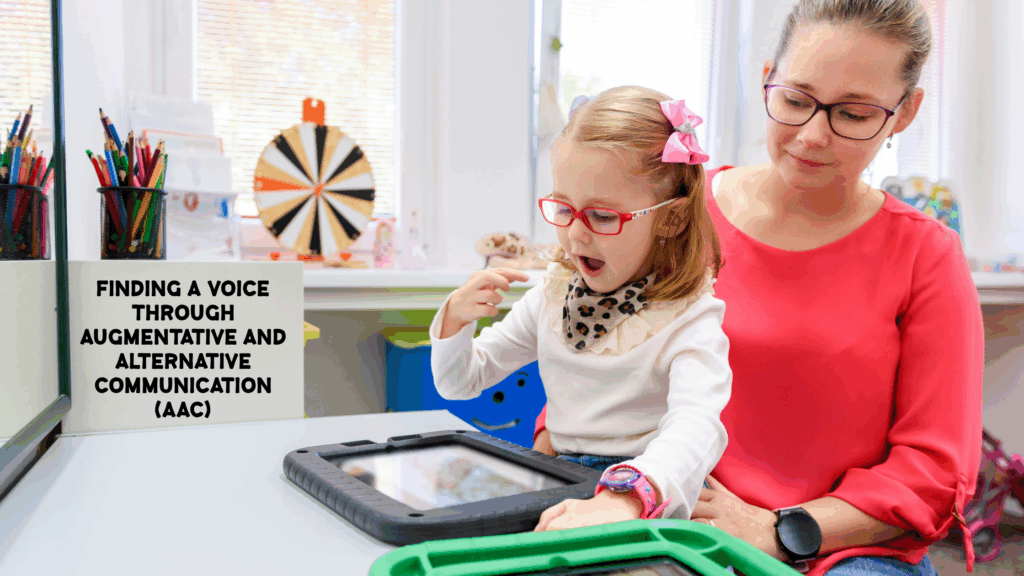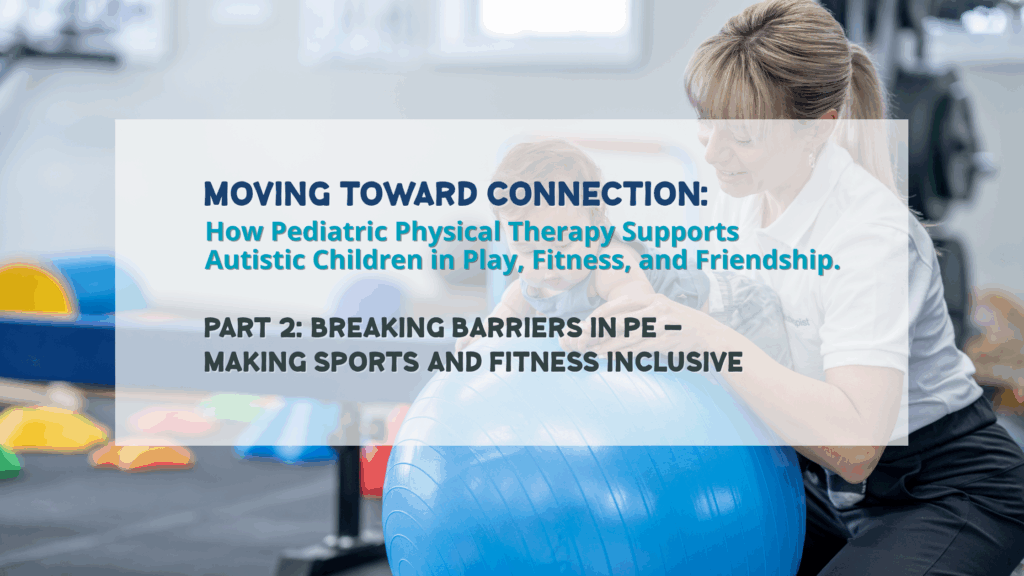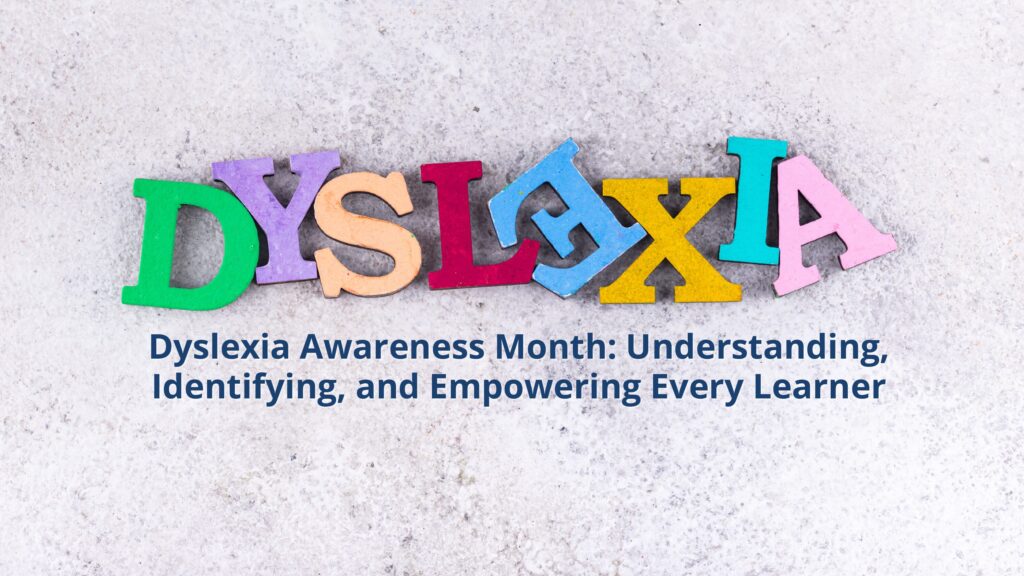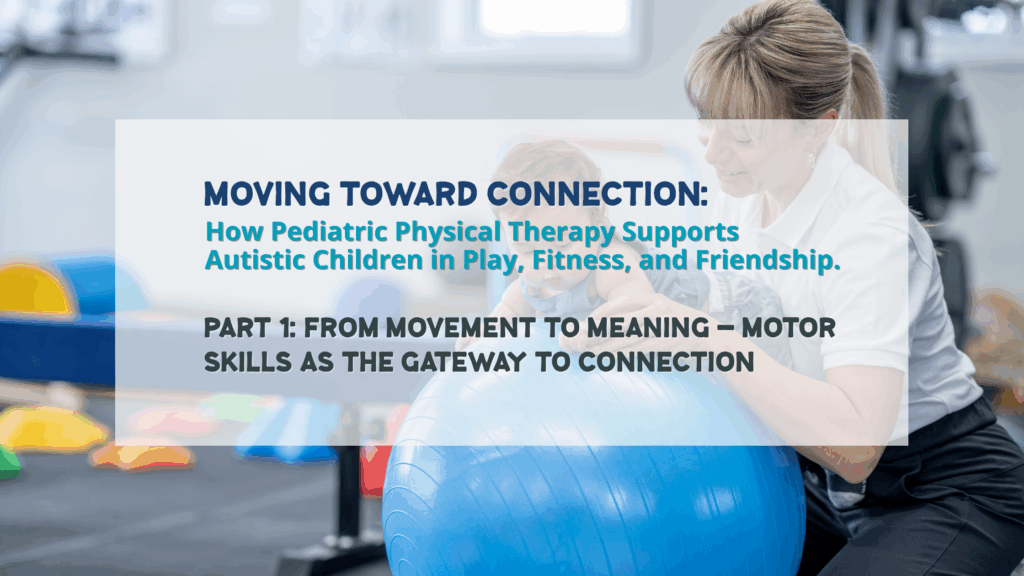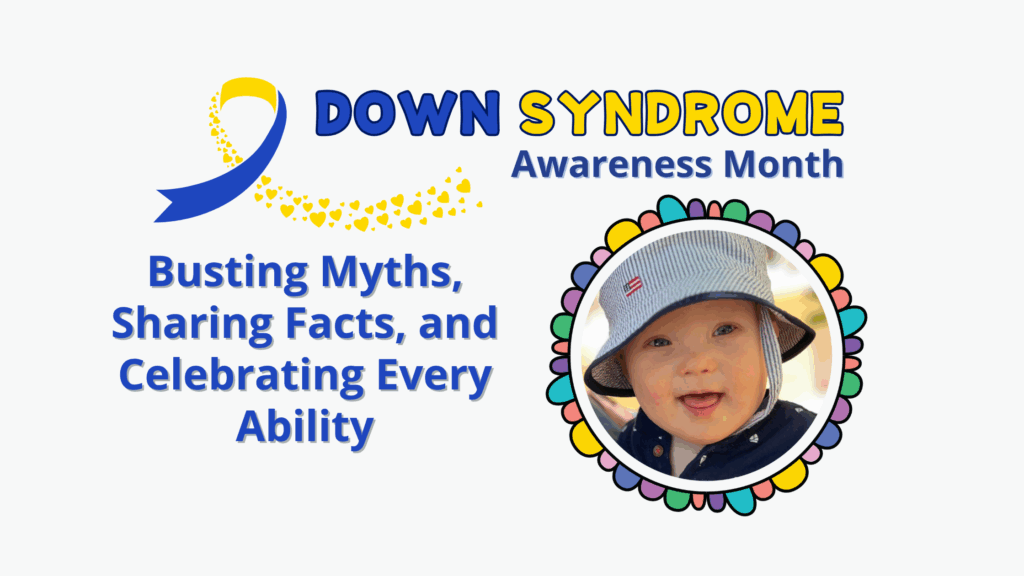It is a life-changing moment when a parent learns their child has been diagnosed with autism. Suddenly, everything you thought you knew about your family changes. What do you do now? What’s the right thing to do as a parent?
Autism Spectrum Disorder (ASD) is a neurodevelopmental disorder that affects how a person communicates and interacts with others. There is no one-size-fits-all approach to parenting an autistic child, but there are many resources available to help guide you on your journey. In this blog post, we will discuss some important steps parents can take to better equip themselves when navigating autism.
What is Autism Spectrum Disorder?
Autism Spectrum Disorder (ASD) is a neurodevelopmental disorder that affects how a person communicates and interacts with others. It includes a range of symptoms, from mild to severe. Autism can impact a child’s ability to speak, socialize, and play normally with other children. Some common signs of autism include:
- Delayed language development
- Difficulty understanding social cues
- Repetitive behaviors or movement
- Issues with adapting routines
- Lose developmental skills they once had and so on.
Autism is diagnosed in approximately one out of every 44 children. Boys are four times more likely to be diagnosed with autism than girls.
Diagnosis is not always easy and symptoms can vary from child to child. It is important to remember that every autistic person is unique and should be treated as such. ASD is a condition to be lived with, not a disease to be cured.
The sooner a child is diagnosed with autism, the sooner they can begin receiving early intervention services. Children with autism deserve happiness, love, and acceptance just like everyone else. An early diagnosis can help them obtain that.
Early intervention means identifying and providing early support to children and young people who are at risk of poor outcomes. This includes children with developmental delays, disabilities, or special needs.
There are many programs, services, and autism support groups available to help autistic children and their families. The best place to start is with your child’s doctor or pediatrician. They can provide you with information on local autism resource materials and services that may be available in your area.
Effects of Autism on Parents
The news of a child’s autism diagnosis can be overwhelming for parents. It is normal to feel a range of emotions, including sadness, anger, confusion, and fear. Many parents struggle with guilt and self-blame after learning their child has autism.
It is important to remember that you are not responsible for your child’s diagnosis. There are many challenges parents of autistic children face. One common challenge is getting their children to sleep through the night. Autistic children often have difficulty regulating their emotions and can be prone to tantrums and nightmares. It is important to create a bedtime routine and stick to it as much as possible. Establish a regular bedtime, limit screen time before bed, and provide a calm and relaxing environment for your child to sleep in.
Another common challenge for parents is getting their children to eat a variety of foods. Autistic children can be very selective about what they eat and often have a limited diet. Some may also have common food allergies or sensitivities including gluten, dairy, eggs, soy, and nuts. It is important to work with a nutritionist to create a balanced diet for your child.
One of the biggest challenges parents face after their child’s autism diagnosis is community stigma. There is a lot of misinformation and misunderstanding about autism. Many people believe that autism is a mental illness or that autistic children are less intelligent than other children. This can lead to discrimination and bullying. Having a strong autism support group can help you handle these adverse situations.
Another challenge parents face is the financial impact of autism. Autism resources can be incredibly expensive. There are many therapies and treatments that are often recommended for autistic children, and these can be costly. Insurance often does not cover the full cost of treatment, which can be a burden for families.
There are many ways to get help with the financial cost of autism. Some states have programs that provide financial assistance to families with autistic children. There are also many charities and foundations that provide financial assistance to families in need.
Embrace the Diagnosis
Having a child diagnosed with autism can be scary and uncertain, but it may be a blessing in disguise. Children on the spectrum often have many talents and abilities and help the people around them see the world from a different perspective.
You’re probably having a lot of conflicting emotions about the diagnosis. The best thing you can do is just accept that your child has a spectrum disorder, then work forwards from there.
Process Your Feelings
Again, it is natural for parents to feel a range of emotions after learning their child has autism. Shock, sadness, confusion, and anger are all common reactions. Parents need to give themselves time to process these feelings. You are not alone in this journey – many other parents have walked this path before you. Seek out support from friends and family, or local support groups. It is also important to connect with other parents who have children on the autism spectrum. They can offer valuable advice and support.
Learn What It Means to Have an Autistic Child
Autism is a complex disorder, and there is a lot to learn about.
After you have processed your emotions, it’s time to delve deeper into this diagnosis. Learn as much as you can about autism. What does it mean to have an autistic child? What are the best therapies and treatments for your child? There is a lot of information available, both online and in print. It is important to find what works best for you and your family.
Autistic children can demonstrate behavior that is difficult to deal with as a result of sensory issues. The best response is to have compassion for your austitic child. They are overwhelmed by situations, sensations and feelings that most other people don’t have to think twice about. They’re doing the best they can. It’s your job to help them.
Access Services
Children who have autism need specialized support as soon as possible. The earlier they receive this support, the better chance they can find a way to adapt to it
Fortunately, there are many services available to help children with autism. Some common services include early intervention or school educational programs, speech, and language therapy, and child counseling.
Parents need to research the options available in their area and access the services that will be most beneficial for their children.
Insurance
Medication and therapies for autistic children can be very costly. Many parents worry about how they will pay for these treatments. Your child may need medication to address some behavior problems of autism, such as co-occurring depression or anxiety. Also, many therapies can help improve your child’s development and quality of life, such as speech and language therapy.
One way to help cover the cost of treatment is to have insurance that covers autism spectrum disorders (ASD). Not all insurance companies offer this coverage, so it is important to check with your provider. If your insurance company does not offer coverage for ASD, there are still options available to you. There are many charities and foundations that provide financial assistance to families in need.
Therapists
Children with ASD may suffer from a range of behavioral and emotional problems. They may also have difficulty communicating with others, which would be frustrating for anyone. This can be very difficult for parents, who often don’t know how to help their children and feel overwhelmed and alone.
One of the best things you can do is to find a therapist who specializes in working with children on the autism spectrum. A good therapist can offer support and guidance to both you and your child. They can also help you to develop strategies to deal with any behavioral problems your child may have.
They may offer behavioral treatment, which can be very effective in improving your child’s behavior.
A few of these services include:
- Applied Behavior Analysis (ABA): ABA Therapy is a type of behavioral therapy that focuses on improving specific behaviors.
- Functional Communication Training (FCT): FCT helps children learn how to communicate effectively with others.
- Verbal Behavior Therapy (VBT): VBT uses language to help children learn and behave appropriately.
Through our Autism Navigator program, you can find the best place to start for understanding and supporting your autistic child.
Early Intervention or School Programs
There are many early intervention or Autism school programs available for children. These educational programs offer specialized instruction and support to help children reach their fullest potential. Parents need to research the options available in their area and enroll their child in the program that will be most beneficial.
Here are a few programs that parents may want to consider:
- Program for the Education and Enrichment of Relational Skills (PEERS): An evidence-based social skills intervention for youth with social challenges
- Facing Your Fears (FYF): A 12-week program that helps children with autism learn how to manage their fears and anxieties. Parents also learn how to support their children with ASD and co-occurring anxiety
- Pediatric Occupational Therapy: a program designed to help children acquire the skills needed to perform the activities of daily life. This may include helping a child to develop better handwriting skills or teaching them how to eat independently
Find Support
Parents must find a support network as they navigate a child’s autism diagnosis. Seek out support from friends and family, or local support groups. There are also many online resources available, including blogs and forums.
Family & friends
Family and friends can be a great source of support for parents of autistic children. They may not always understand what you are going through, but they want to help. Talk to them about your child’s diagnosis and ask for their help.
Local support groups
There are many local support networks available for parents of autistic children. These groups offer a safe place for parents to connect with others who are going through a similar experience.
Sibling Support Groups
There are also sibling support groups available. Sibling support groups provide a place for brothers and sisters of children with autism to connect with others who understand what they are going through.
Siblings can be a great help when it comes to taking care of a brother or sister with autism. They can teach them how to connect with their autistic sibling on a deeper level. Brothers and sisters can also be a great support system, helping each other through tough times. Brothers and sisters need to learn how to get along with their autistic siblings and support them.
Online Autism Information for Parents
There are many online resources available for parents of autistic children. These resources can offer advice and support from other parents who have been in your shoes. Some popular resources include:
School District’s Special Education PTA
Your school district’s special education PTA can be a great resource for parents of autistic children. They can offer advice and support, and provide information about programs and services available in your area.
Practice Self Care
Parents of autistic children need to take care of themselves. This is because it is easy for parents to become overwhelmed and stressed. Make sure you get plenty of rest and exercise and take time for yourself. This will help you stay healthy and energized, and in turn, make you more able to provide for your autistic child’s special needs.
Learning how to manage your stress is an important part of taking care of yourself. Many techniques can help, such as yoga, meditation, and deep breathing exercises. Practicing mindfulness and other meditation activities can help you refocus and relax.
Whatever activities you choose, take note of them and make sure they are something that you enjoy and can look forward to. This will help you stay positive and upbeat throughout your journey.
However, if you are feeling overwhelmed and stressed, it is important to reach out for help. Talk to your doctor or trained therapist about your feelings and ask for their advice.
Respite care is a support system for caregivers that gives them temporary rest from caretaking. This can be a great way for caregivers to relax and rejuvenate. There are many different types of respite care available, such as adult daycare, in-home care, and overnight respite.
Caregivers need to take advantage of respite care when they can. This will help them stay healthy and energized. It is also important to find a respite care option that works well for you and your family.
Learn Your Role in Advocating for Your Child
Parents need to learn how to advocate for their children. This involves researching and learning about the child counseling services available in your area and contacting the appropriate people to get your child enrolled. It also means working with teachers, child therapists, and other professionals to make sure your child receives the best possible care.
As a parent of a child with autism, you may need to learn some parenting techniques to help manage your child’s disruptive behaviors. Parent training can be a great way to learn about these techniques.
Parent training for disruptive behaviors in ASD usually addresses:
- Noncompliance: This refers to a child’s refusal to comply with adults’ requests or rules.
- Aggression: This includes both verbal and physical aggression
- Temper outbursts: These are episodes of extreme anger or frustration that can last for a few minutes or hours.
- Difficulties with a transition: This includes problems with changes in routine or environment, such as going to a new school.
If your child is displaying any of these behaviors, it is important to seek help from a professional. They can provide you with the tools and techniques you need to manage your child’s behavior.
There are many different types of parent training programs available, so it is important to find one that fits your needs.
Also, teaching your child how to interact and play with their siblings can help prevent behavioral problems. This can be done through sibling playdates, or by having them spend time together during special occasions.
It’s also important that you encourage your child to go out and play with children their age. This can be difficult for children with spectrum disorders; it’s important that they learn social skills that will better enable them to navigate the world.
Lastly, there are a lot of other parents out there with kids who have autism. You can talk to them and learn from them about what works and what doesn’t. This person could be a friend, family member, or even another parent whose child has autism.
Autism is a Journey, Not a Destination. Embrace It!
As we know, autism is a lifelong condition and the journey of parenting an autistic child is never-ending. There will be challenges along the way, but there are also many rewards. Children with autism face many difficulties that neurotypical children don’t, but they often have many wonderful skills and talents because of their unique way of seeing the world. Raising an autistic child can be challenging, but it can be so rewarding, too.
As a parent of a child newly diagnosed with autism, it’s natural to feel overwhelmed and even scared. Accepting a diagnosis of autism can be difficult, but it is also a time to embrace new beginnings. With the right resources and support, you can face this challenge head-on and create a bright future for your child.
Thankfully, our therapists specialize in working with children on the autism spectrum and we offer a variety of services to help them reach their fullest potential.
If you or someone you know is struggling with supporting a child with autism, TES offers navigation services that can help.Champion your role as a parent of an autistic child and request an appointment today


 22 Feb 2022
22 Feb 2022 

